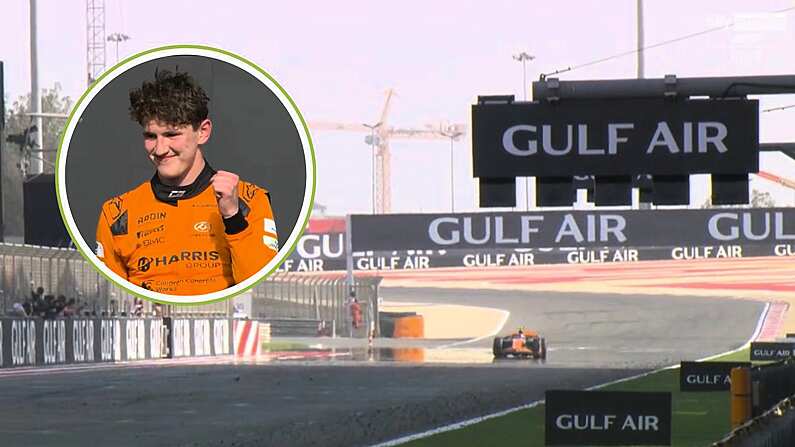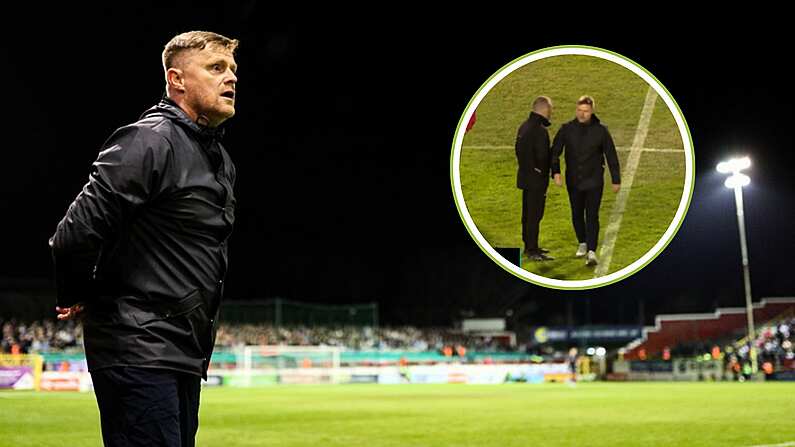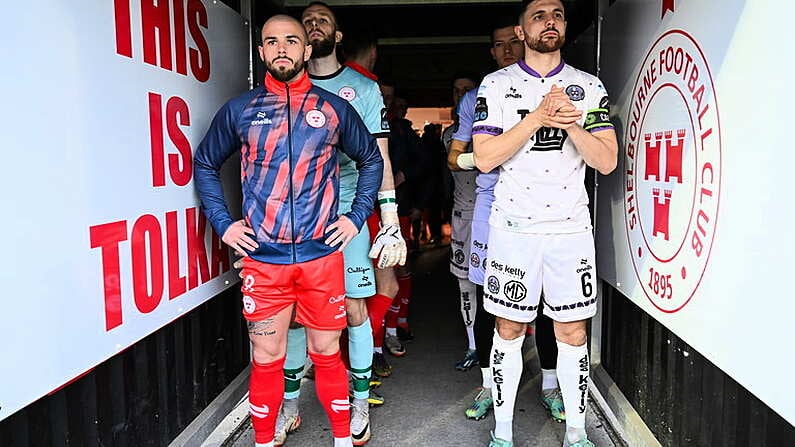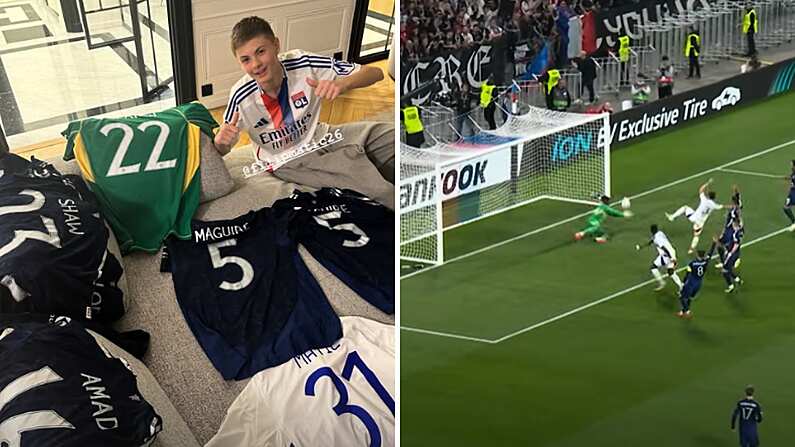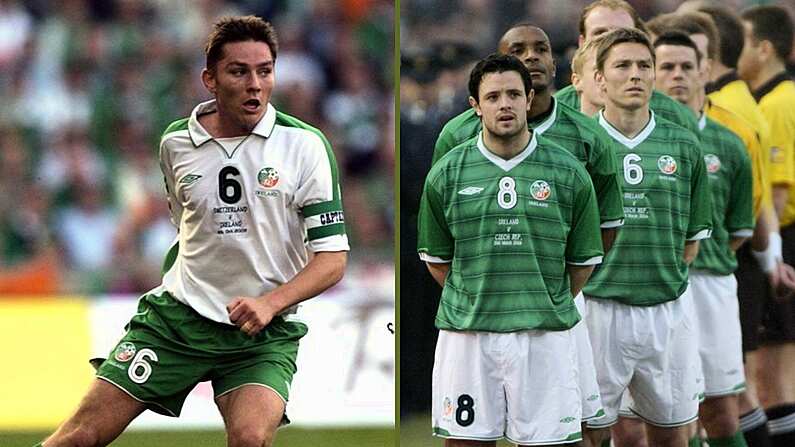Eight years ago, artist Christian Marclay debuted a film called The Clock at White Cube in London.
It is 24 hours long, and consists entirely of scenes of clocks and timepieces from hundreds of different films spliced together in chronological order. It is synched with real time, so it is an elaborate way of watching time pass.
The Clock interests this column as the experience of watching it chimes as being similar with the experience of live football, the latter being the more mainstream iteration of the concept in which groups of people come together to look at the ticking of a clock on a screen.
We haven’t seen the movie – we just haven’t found the time – but among those who have watched it is the writer Zadie Smith.
Writing for the New York Review of Books, Smith was struck by how the film jarred with the Hollywood cinema experience we are used to, with the traditional ‘set-up-then-conflict-then-resolution’ arc subsumed and eliminated by the remorseless ticking of the clock.
In Hollywood, time is usually the enemy and it is bent and beaten by the deeds of the hero – the bomb with the ten-second countdown is defused with a second left on the blinking timer after a minute of stomach-knotting tension for the viewer – but in The Clock, time is always the winner.
There is no dramatic crescendo or happy ending here, all that exists is tick, tick, tick…and then a final tick at a totally random moment.
Like The Clock, live football on television is a form of entertainment in which time always wins.
Time in football is never suspended or sidelined to allow something happen – anything that happens in a football match is within time and in spite of time, rather than because of it. (Okay, unless you are a fourth official standing beside Alex Ferguson, where things become a little more flexible).
There is only a certain amount of time to score a goal, and it isn’t going to slow down to allow your team score a dramatic late winner as it might for our Generic Bomb-Defusing Hero.
(This column is picturing Bruce Willis, as Mark Wahlberg seems a little, er, stuck for time these days).
Your football team either wins, loses, or draws before time ticks on and asks them to win, lose, or draw all over again.
The appeal of the whole thing as a television event derives from this; the truth that there is as much a chance of a load of mad shit happening in the space of ninety minutes as there is the chance of nothing happening.
Nothing is bent for forgiving narrative: the writer Declan Lynch’s great aphorism that you should never not watch a football match neatly sums this up.
This is also the reason that football TV rights are still so valuable: games cannot be streamed on Netflix by anyone at any time, but are the product of a specific ninety minutes in a given day, meaning plenty of advertising-susceptible eyeballs have to be watching at the same time.
It is into this one-sided battle that the TV companies and the richest football clubs now wade, and are now exacting revenge on your time.
One of the great rhythms of Autumn life, the Champions League, returns tonight in little other than name. Gone is the 7.45pm tradition, and instead games are staggered and kicking off at 5.55pm and 8pm.
This is all about money, of course: why sell ads around Liverpool/PSG and Inter Milan/Spurs at the same time when we can start the latter earlier in the evening, at a time which suits all but the Already-Largely-Eurosceptic Greenwich Mean Timers?
As you know, humble reader, twice as many games on TV means twice as many games you feel you have to watch. It will be an oddly overwhelming experience, but the last few years has seen The Premier League run a trial on our weekends.
The extent to which its broadcasters Sky and BT have colonised our weekends is a remarkable thing.
We are manacled to five or six fixed points of their choosing – the Saturday Lunchtime; the 3 o’clock game; the evening kickoff; the 1.30pm and 4pm games on Super Sunday; the Monday Night football – with just enough slack on the chains to allow us arrange the rest of our lives accordingly.
Weekends are sorted around blocks of ninety minutes: which games do you have to watch live? At which points can you make concessions to Life?
Which games can you afford to follow on the radio in the car, or by refreshing your Twitter? (Sky-Plus and similar miracles can be used as rebellions against this reality, but the stress of avoiding a result is deeply wearing and should be risked no more than twice a month).
This column has been known to tear itself from the television over the course of Premier League weekends, and when we do we occasionally catch glimpses of how The Others live; those heathens who can breeze zestlessly about on Saturdays and Sundays varnishing, eating brunch, building true, meaningful human relationships and sleeping in without the gnawing skittishness of tracking your bets or your Fantasy Football Team, gloriously free of the tyranny of LiveScore and the tenor of Jeff Stelling’s voice.
They must all be so damn…..productive.
By contrast, the football fan is either busy watching a game or busy comparing their current experience to the game they could have watched.
There is always a scratching uncertainty about Missing a Game, as by swerving Everton v West Ham you might miss a genuine classic of the genre for which you will never forgive yourself.
The One You Miss becomes less a game of football than a constant point of comparison against which to evaluate the ninety minutes of your life you are spending not watching it.
Now the Champions League is going to do to our Tuesdays and Wednesdays what the Premier League has already done to our Saturdays, Sundays, Mondays and the odd Friday: you can either watch something that might be terrible or miss something that might be iconic.
(It remains of vital importance that we never decide to take the Europa League seriously, as Thursdays are all we have left).
At the end of her essay, Zadie Smith slips away from the screening of The Clock to get on with her day.
Football fans don’t have that luxury: even when they decide not to watch, they can still see time slipping ignorantly by; crumbling away in ninety-minute chunks.
Stray Observations
- In light of the above column, it is important to recognise Match of the Day as the apogee of human achievement. All you need to know and see either live on a Saturday night or hungover on a Sunday morning. There will never be a better idea in football broadcasting.
- Bournemouth v Leicester might have set a new record for players using goal celebrations to publicise the fact they've just had a child.
- Before the international break, even the best sides in the Premier League still looked weathered by the World Cup. This weekend, most sides looked much, much sharper: Liverpool, Chelsea, United, City...although not Spurs.
- What a line by Rio Ferdinand ahead of United's trip to Watford: "“I see Man United coming here and causing an upset".
- This tweet by journalist Nick Miller got us thinking on the best camera angles in Premier League grounds. Old Trafford's is probably the best, although the new one at Anfield is a contender with Molineux and Watford. Our least favourite is Newcastle's. Get in touch with yours.
- BIG SAM RESCUE-O-METER: This is where we judge which side are closest to phoning Sam Allardyce in a principle-cascading panic to avoid relegation. Currently top/bottom of the dial are....
West HamBurnley - Irish Performance of the Week: Declan Rice, dammit. It's not over yet.
Tweets of the Week
I’m sorry but Guardiola’s getting too complacent now pic.twitter.com/FNsxNsrzxL
— Oldfirmfacts (@Oldfirmfacts1) September 15, 2018
I know you think it’s late but Mark Wahlberg has just hit the snooze button.
— David Preece (@davidpreece12) September 16, 2018
Mark Hughes' whinge rate* as Southampton manager is twice as high (46%) as his win rate (23%).
* He has moaned about referees after six of 13 league games in charge.— Richard Jolly 🇺🇦 (@RichJolly) September 17, 2018




